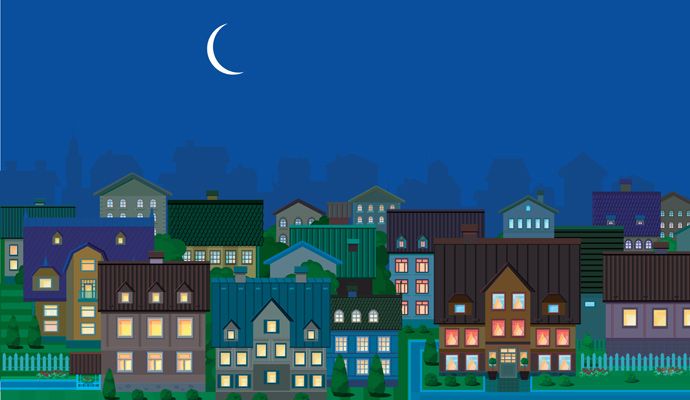Here's the schedule very successful people follow every day
Research shows that 2.5 to four hours after waking is when your brain is sharpest. Don't waste it on a conference call.

A free daily email with the biggest news stories of the day – and the best features from TheWeek.com
You are now subscribed
Your newsletter sign-up was successful

All too often, productivity tips are a dime a dozen. Some even conflict with each other. What we need is a system.
What schedule do the pros use? What system does science say allows us to be most productive?
The key is feeling in control and making sure your energy levels are matched to the importance of the task at hand.
The Week
Escape your echo chamber. Get the facts behind the news, plus analysis from multiple perspectives.

Sign up for The Week's Free Newsletters
From our morning news briefing to a weekly Good News Newsletter, get the best of The Week delivered directly to your inbox.
From our morning news briefing to a weekly Good News Newsletter, get the best of The Week delivered directly to your inbox.
Let's assemble the expert ideas and research we've covered into a more cohesive schedule you can apply to your day.
How do you do that? You may want to get your calendar out. We've got some changes to make.
1) The morning ritual
Laura Vanderkam studied the schedules of high-achievers. What did she find? They rise early. Almost all have a morning ritual.
A free daily email with the biggest news stories of the day – and the best features from TheWeek.com
You need to wake up before the insanity starts. Before demands are made on you. Before your goals for the day have competition.
If you want to achieve work-life balance you need to determine what is important and focus on that. (And research shows goals make you happier.)
Having concrete goals was correlated with huge increases in confidence and feelings of control.
People who construct their goals in concrete terms are 50 percent more likely to feel confident they will attain their goals and 32 percent more likely to feel in control of their lives. – Howatt 1999 [The 100 Simple Secrets of Successful People]
As I've discussed before, the second part of your morning ritual is about mood. That feeling of control is what produces grit and makes people persist.
Research comparing students of similar ability finds that the distinguishing feature between those who maintain a strong work ethic in their studies and those who give up is a sense of control. Those who express a sense of control receive scores that are a full letter grade higher than those who do not. – Mendoza 1999 [The 100 Simple Secrets of Successful People]
(For more on morning rituals, click here.)
You've got your goal and you're in control. Cool. But what about when you get to work? I recommend you find somewhere to hide. Here's why…
2) Important work first thing — with no distractions
Many people arrive at the office and immediately get busy with email and meetings, leaving real work for later in the day… Rookie error.
Research shows that 2.5 to four hours after waking is when your brain is sharpest. You want to waste that on a conference call or a staff meeting?
Studies show that alertness and memory, the ability to think clearly and to learn, can vary by between 15 and 30 percent over the course of a day. Most of us are sharpest some two and a half to four hours after waking. [Sex Sleep Eat Drink Dream: A Day in the Life of Your Body]
When I interviewed willpower expert Roy Baumeister, what did he have to say? Early morning is also when you're most disciplined:
The longer people have been awake, the more self-control problems happen. Most things go bad in the evening. Diets are broken at the evening snack, not at breakfast or in the middle of the morning. Impulsive crimes are mostly committed after midnight.
But does this really work? In studies of geniuses, most did their best work early in the day.
"But why did you say I need to hide somewhere?"
Because distractions make you stupid. These days it's hard to do much real work at work.
Jason Fried explains the modern workplace is an endless stream of interruptions. (Short on time? Watch the first five minutes):
Can't do the work of your choice when the day starts? Get in early or work from home before you head into the office.
(For more on using your peak hours right, click here.)
So you're making progress on the thing that matters. But you can't sprint for miles. What do you do when your brain gets tired?
3) Regroup when you slow down

Afternoon brain fog. We've all felt it. Why does this happen? Working too hard? Food coma? Often it's just our natural circadian rhythm: First, take a break. Get a snack or a power nap if you can.
What you need next is a mini-version of your morning ritual. Review your goals and the progress you've made this morning.
Harvard research shows nothing is more motivating than progress. Appreciating how far they've come is what very persistent people do.
Comparing people who tend to give up easily with people who tend to carry on, even through difficult challenges, researchers find that persistent people spend twice as much time thinking, not about what has to be done, but about what they have already accomplished, the fact that the task is doable, and that they are capable of it. – Sparrow 1998 [The 100 Simple Secrets of Successful People]
(For more on fighting procrastination, click here.)
You got a break, reviewed your goals and achievements, and now you're ready to work again. What do you focus on now?
4) Meetings, calls and people stuff in the afternoon
When energy is high, that's when you want to focus on creative, challenging work. When energy is low, do busy work.
Scott Adams, creator of Dilbert, makes comics in the morning. By the afternoon, his brain is fuzzy and he shifts his objectives.
One of the most important tricks for maximizing your productivity involves matching your mental state to the task… At 6:00 A.M. I'm a creator, and by 2:00 P.M. I'm a copier… It's the perfect match of my energy level with a mindless task. [How to Fail at Almost Everything and Still Win Big]
And research shows the afternoon really is the best time for meetings — specifically, 3PM.
Need to power through some busy work but you can't muster the willpower? This is when distraction can benefit you.
When tasks are dull and you're feeling distractable, friends can make you more productive — even if they're not helping.
Just having friends nearby can push you toward productivity. "There's a concept in ADHD treatment called the 'body double,'" says David Nowell, Ph.D., a clinical neuropsychologist from Worcester, Massachusetts. "Distractable people get more done when there is someone else there, even if he isn't coaching or assisting them." If you're facing a task that is dull or difficult, such as cleaning out your closets or pulling together your receipts for tax time, get a friend to be your body double. [Friendfluence: The Surprising Ways Friends Make Us Who We Are]
(For more on how to work smarter, not harder, click here.)
So the work day is over. Is that it? Nope. There's an optimal way to handle your schedule after the sun goes down too.
5) A relaxing evening

Though successful people do work long hours, the greats almost all take the evening off to recharge.
Before dinner, Tim Ferriss recommends writing down your big goal for tomorrow. This will get your mind off work and allow you to relax.
What does research say can help you chill out? Hint: don't trust your instincts.
The things we frequently choose to reduce stress are often the least effective.
What does work? Seeing friends and active hobbies. What doesn't? More passive activities like TV, video games, and eating.
According to the American Psychological Association, the most effective stress-relief strategies are exercising or playing sports, praying or attending a religious service, reading, listening to music, spending time with friends or family, getting a massage, going outside for a walk, meditating or doing yoga, and spending time with a creative hobby. (The least effective strategies are gambling, shopping, smoking, drinking, eating, playing video games, surfing the Internet, and watching TV or movies for more than two hours.) [The Willpower Instinct: How Self-Control Works, Why It Matters, and What You Can Do To Get More of It]
Past that, get to bed. Studies of world class performers show they have boundless energy, so get those zzz's to be one of them.
No, you can't cheat yourself on sleep and not see negative effects.
What does brain research tell us about cutting corners at bedtime? You're basically making yourself stupid:
The bottom line is that sleep loss means mind loss. Sleep loss cripples thinking, in just about every way you can measure thinking. Sleep loss hurts attention, executive function, immediate memory, working memory, mood, quantitative skills, logical reasoning ability, general math knowledge. [Brain Rules: 12 Principles for Surviving and Thriving at Work, Home, and School]
(For how to make your weekends awesome, click here.)
So how do we bring this all together to be more successful?
Sum up
Here's what a successful schedule looks like:
1. Your morning ritual2. Important work first thing — with no distractions3. Regroup when you slow down4. Meetings, calls, and little things in the afternoon5. A relaxing evening
Sadly, we can't all dictate our own schedule. That's why there are no specific times listed above.
But we can all opt to do some things before or after others. Stop focusing on just getting lots of random things done to pretend you're making progress.
All moments in your day are not equal, and all tasks are not of equal importance. Knowing the best time to get the right things done is key.
What will this schedule do for you? Well, when the day ends you're still going to find that you didn't get everything done.
But that won't bother you much because you did the things that mattered, and did them well.
(If you want a nice PDF of this schedule, join my weekly update here. I'll be sending one out with next week's update.)
Join 85K+ readers. Get a free weekly update via email here.
More from Barking Up The Wrong Tree...
-
 Hotel Sacher Wien: Vienna’s grandest hotel is fit for royalty
Hotel Sacher Wien: Vienna’s grandest hotel is fit for royaltyThe Week Recommends The five-star birthplace of the famous Sachertorte chocolate cake is celebrating its 150th anniversary
-
 Where to begin with Portuguese wines
Where to begin with Portuguese winesThe Week Recommends Indulge in some delicious blends to celebrate the end of Dry January
-
 Climate change has reduced US salaries
Climate change has reduced US salariesUnder the radar Elevated temperatures are capable of affecting the entire economy